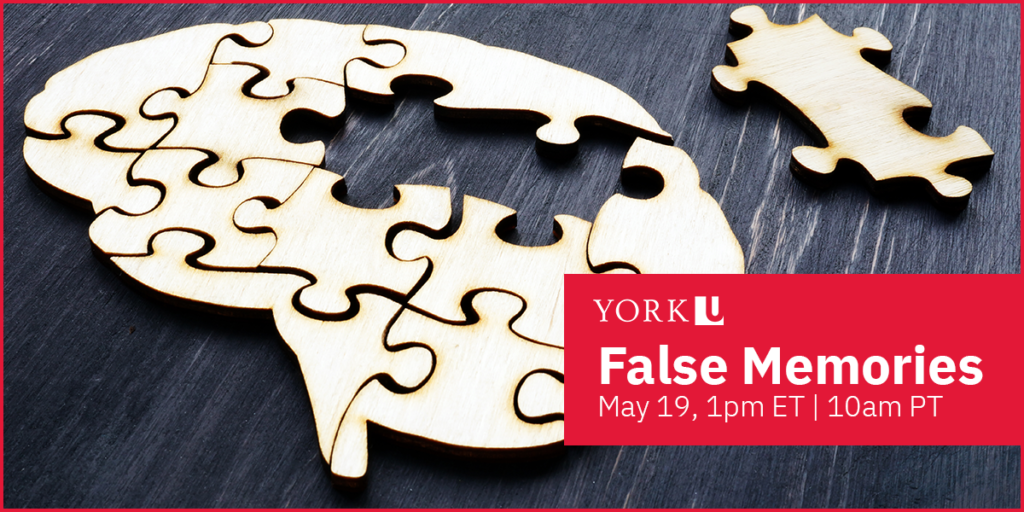
What can we make of our memories of events that never actually happened? What are the behavioural consequences and societal implications of false memories?
The complex factors behind this fascinating psychological phenomenon were explored by the Faculty of Health in a webinar on May 19. Hosted by Louise Hartley, director of the York University Psychology Clinic, this two-hour event featured current clinical insights on how and why we form false memories.
First to contribute and provide personal context was York alumna Lozanne Wamback of the Canadian Crime Victim Foundation. She and her husband formed the victim’s rights organization in 2000 after their 15-year-old son Jonathan was brutally attacked by a group of young offenders. His parents report that inappropriate therapy caused him to subsequently distance himself from his parents.
“Can you imagine your son or daughter comes to you one day out of the blue, and tells you they can no longer have anything do to with you, because of some event that’s so clear in their mind, but yet never happened?” Wamback said. “You sit and wait and hope and pray and long for that child to come back.”
The formation and ramifications of false memories was explained by Daniel Bernstein, a Tier 2 Canada Research Chair in Lifespan Cognition and psychology instructor at Kwantlen Polytechnic University in B.C. He discussed cognitive psychology paradigms for eliciting false memories for details and entire events. The Deese/Roediger-McDermott Paradigm requires a subject to listen to a list of related words (e.g., bed, rest, tired, dream...), and later indicate which ones they remember. Often, he said, people recall a related but absent word (e.g., sleep)—in other words, they have a false memory."
Bernstein also discussed how our recollections can be confused by false autobiographical suggestion, which is when we come to believe we experienced an event that never happened because an authoritative figure—police officer, therapist, parent—suggested (usually inadvertently) we did.
“People will report and believe false memories when an authority figure makes the false event seem plausible,” Bernstein said.
Tim Moore, chair of psychology at Glendon College, and a forensic psychology professor, discussed the challenges of interviewing children about their memories of an incident for a criminal justice case. He referenced the Martensville satanic sex scandal of 1992, when a Saskatchewan daycare faced more than 100 charges of sexual abuse of children in its care, but an RCMP investigation later found the children were asked leading questions by police. He noted how an improper interview can contaminate the reliability of a child’s statements.
“Most of the time, our memories serve us quite well,” Moore said. “But our brains are not repositories of the videostream of life. Subjectively, it may feel like we are watching a movie, but the movie is a creation of our own making.”
